RUSH: The Supreme Court, ladies and gentlemen, has upheld Trump’s travel ban and has reinstated it. To me, this is an example of how silly and stupid we have been since Trump was — not us. There has been no question that Trump was totally constitutionally within his rights to issue this travel ban.
An act of Congress that we read to you many times explicitly granted to Trump the official constitutional powers to do exactly what he did and more if he wanted to in his travel ban. It was stayed by all these lower courts and then upheld by the U.S. Ninth Circuit. And it was only a matter of time before it got to the Supreme Court, and the Supreme Court reinstated it and said they’re gonna hear arguments in October.
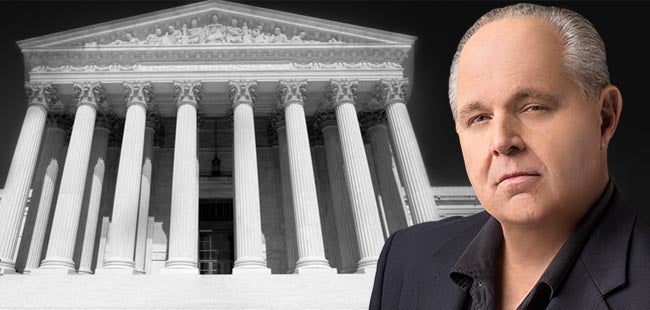 What this means: Trump was right, Trump had full authority to do what he did. The media experts were wrong, all of this in-depth analysis, all the panel discussions, all the people supporting these judges who said that they were going to stay the travel ban because of what Trump had said during the campaign trail, and all of this enlightened intellectual hemming and hawing back and forth on cable TV, which was an embarrassing joke to anybody who knows the Constitution and the law has just been blown to smithereens.
What this means: Trump was right, Trump had full authority to do what he did. The media experts were wrong, all of this in-depth analysis, all the panel discussions, all the people supporting these judges who said that they were going to stay the travel ban because of what Trump had said during the campaign trail, and all of this enlightened intellectual hemming and hawing back and forth on cable TV, which was an embarrassing joke to anybody who knows the Constitution and the law has just been blown to smithereens.
Now, the Supreme Court, given that courts, including the Supreme Court, allow or deny stays based upon the likelihood that the issue in question will be found to be constitutional or not, this unanimous decision to allow the Trump travel ban to be implemented shows that the court thinks it’s highly likely that Trump will eventually prevail during oral arguments and the formal presentation of the case when the court hears it in October.
The only exception here that the court carved out is that immigrants and refugees and others entering the country cannot be kept out if they can show a definite link, familial or some other type of relation, to somebody who is a citizen living in America.
Now, what’s gonna happen here, remember, now, the left never just says, “Oh, we lost? Oh, okay.” That’s not how they do it. So what’s gonna happen here, the left is gonna go out and find a bunch of people who may or may not have friends or family living in America who are citizens. They’re gonna try to get in, they’re gonna be denied by the ban and then they’re gonna file lawsuits.
I know this because I saw some left-wing commentator on CNN today discuss the likelihood and the possibility, which means they’re already thinking about it and probably already have the process ready to go. Just flood the courts with lawsuit after lawsuit after lawsuit. After attempts to enter the country are denied on the basis of the ban, the left will get into gear and file massive lawsuits against Trump and against the DOJ and against the government for this.
But all that aside, it is something to feel comforted about and revealed about because the Supreme Court — it’s kind of like the Florida recount. The recount in 2000 that the Florida Supreme Court continued to authorize was just crazy. It was asinine. Over and over again the definition of hanging chads changing, and basically the Florida Supreme Court was allowing the recount to go on and on and on until the Democrats could find enough votes for Algore.
And after a time the U.S. Supreme Court shut it down using the law and common sense because the law had been satisfied long before — I’m giving you the Cliffs Notes version of this — and of course the Democrats went nuts claiming the Supreme Court interceded to choose Bush when Bush had already been certified as the president. It was a big argument over nothing except the left turned it into a giant political issue in order to delegitimize Bush for his entire presidency, which they immediately embarked on that course and that political procedure.
Same thing here. There was never any doubt that this travel ban was constitutional. The very federal statute that exists, we read it to you I don’t know how many times, Trump totally satisfied it with this travel ban. The only reason to stop this was political hacks that have been appointed to the judiciary by Obama and other Democrat presidents. And they were simply implementing personal political policy preferences to stop the travel ban rather than looking at is as a matter of law.
It was only a matter of time, folks. I never doubted this. When the Supreme Court saw this, the law is the law, the statute’s the statute. And the Supreme Court was gonna slap this down in no time, and it did. Now, the fact that they’re gonna hear it formally in October doesn’t mean that they’re gonna overturn it. It means they want to probably officially hear this thing and give it the official stamp of approval once it’s all said and done, because this is explicitly about the Constitution and separation of powers. And the judicial branch was way overstepping here for personal political policy reasons on the part of all the judges who decided this. Unanimous.
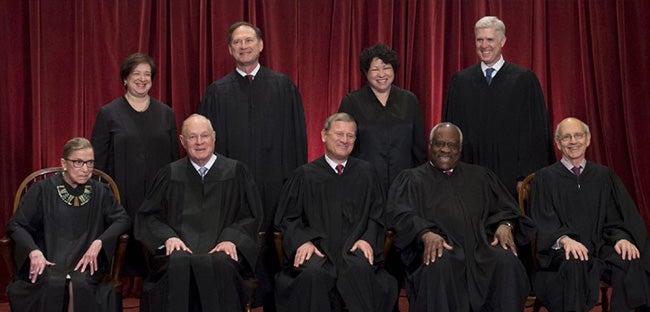 By the way, as the Supreme Court goes, the media is beside itself today. I’ve seen several leftists in media in a panic over the Supreme Court Justice Gorsuch. You know why? Because Gorsuch, they thought he was a moderate for some reason, Gorsuch was a moderate, they held out great hope that Gorsuch was not actually gonna be a Scalia, and there might be a slight change in balance. And then they found out that Gorsuch has agreed with Clarence Thomas four different times so far on four different cases, and they’re livid now.
By the way, as the Supreme Court goes, the media is beside itself today. I’ve seen several leftists in media in a panic over the Supreme Court Justice Gorsuch. You know why? Because Gorsuch, they thought he was a moderate for some reason, Gorsuch was a moderate, they held out great hope that Gorsuch was not actually gonna be a Scalia, and there might be a slight change in balance. And then they found out that Gorsuch has agreed with Clarence Thomas four different times so far on four different cases, and they’re livid now.
They’re claiming there’s nothing moderate about the guy. He’s just as insane, he’s just as wacko, he’s an extremist and we were fooled. All because he agreed with Clarence Thomas four times. Look, the Democrats are in trouble in more ways than one. I know it’s not fashionable to portray them that way because of the history that they have, seemingly on a whim, being able to win and overpower their opponents, but they are encountering a lot of problems. They’re in the midst of tremendous problems and I’m gonna continue to point them out when I see them.
BREAK TRANSCRIPT
RUSH: Now, the Supreme Court, the decision today on the travel ban actually warns nonprofits about setting up phony relationships in order to secure entry by foreigners banned by the travel ban. This is anybody who can claim a legitimate relationship with somebody living in the country now can be exempted from the ban. And I saw some eager beaver leftist on CNN earlier today talking about all the lawsuits that are waiting to happen, which told me they’re already lining them up.
And so the judiciary has been warned for this, and the court, Supreme Court has even warned nonprofits against trying to do this, ’cause it’s the one opening that has been left for people to get in. You mark my words. And the mainstream media anger over this… There’s more outrage from the Drive-Bys over the travel ban than we saw from them after any recent terror attack. They’re livid here. They thought they had Trump boxed in. And Trump just keeps prevailing. It’s one of the reasons I think the worm’s turning.
BREAK TRANSCRIPT
RUSH: Now, one thing about the Supreme Court ruling here on the travel ban, if I may briefly return to that. And of course I can; it’s my program; I can take it anywhere I want it to go. The court said that essentially Trump’s travel ban stands, that it is constitutional. They left one category of foreigner protected: those with a credible claim of a bona fide relationship with a person or entity in the United States. It’s an unsigned opinion. It’s unanimous. It really makes the last however many months since the first travel ban, it makes these last months just a total joke.
Look at what this country has been put through. Look at what the people of this country have been put through by decidedly extraconstitutional acts by hack judges in Seattle and in Hawaii and of course the appellate judges on the Ninth Circuit Court of Appeals. There was never any question statutorily, constitutionally, that the Trump travel ban passed every constitutional test. It was 100 percent constitutional. And it was stayed simply because of the personal political policy preferences of individual district court judges and the Ninth Circuit appellate judges.
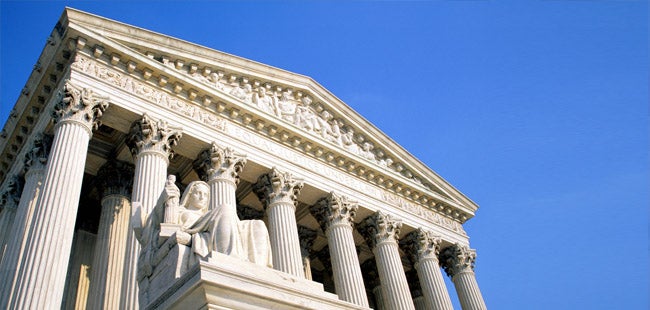 And everything they did was bogus. Everything they wrote was bogus. Everything they wrote stood the law on its head upside down. When it got to the Supreme Court — and it’s unanimous. You don’t even have the four libs trying to bail these judges out, it’s unanimous. The Trump travel ban is a thousand percent constitutional with the one exception, and that is foreigners with a credible claim of a bona fide relationship with a person or entity in the United States can be permitted entry, which is gonna open lawsuits.
And everything they did was bogus. Everything they wrote was bogus. Everything they wrote stood the law on its head upside down. When it got to the Supreme Court — and it’s unanimous. You don’t even have the four libs trying to bail these judges out, it’s unanimous. The Trump travel ban is a thousand percent constitutional with the one exception, and that is foreigners with a credible claim of a bona fide relationship with a person or entity in the United States can be permitted entry, which is gonna open lawsuits.
They punted this until October. And one of the original takes on this, “Well, October, that’s the next session of the court. They have gone ahead and implemented the ban, which means that they think that Trump would prevail under a full-fledged hearing,” blah, blah, blah. There could also be something else going on here. It could well be, ’cause the court could have ruled in toto today if they wanted to. They just didn’t want to maybe give the impression of a full-fledged hearing with oral arguments and all the “shebaz” that goes with it. But in truth they’re probably never gonna hear the case.
The terms of the Trump travel ban limit its application to 90 days or four times, 90 or 120 days.
And Trump said he’s gonna implement the thing in a couple of days after any court rules that it’s constitutional, so that should happen this week. And the travel ban itself is 90 days, 120 days, not sure which. And the reason for that, this is in part of the Trump ban, was during the period of the ban the administration is going to develop new vetting procedures. It’s not a permanent ban. It’s not a policy statement or position. It provides a period of time for the administration to change, ramp up, or vet new vetting procedures. And then after those have been developed the ban’s lifted and a new policy gets put into place.
The Supreme Court may be figuring that by the time they get back after their summer recess, which will be October, that the travel ban order will have lapsed, 90 days, 120 days. By the time they get back, it’s over, in which case the case would be over, the case would be moot. And what would be argued about would be the new vetting procedures that the administration comes up with during the 90 or 120 days of the travel ban. They may not even want to hear the case at all is the point. Could be why they happen.
BREAK TRANSCRIPT
RUSH: Here is Eric in Dallas. Welcome to the EIB Network, sir. Hello.
CALLER: Good afternoon, Rush. Thanks for taking my call.
RUSH: Yes, sir.
CALLER: I wanted to switch over just a little bit and ask you a question about the Supreme Court decision on the travel ban. While I am pleased that they have reinstituted it, I don’t really understand how it will be considered appropriate for the Supreme Court to institute a friends and family plan. It sounds to me kind of like legislating from the bench, you know, that they take this ban and then they say, “Well, part of it might be okay, part of it’s not, we’re gonna make this part okay, or we’re gonna say it’s okay for now except for these people.”
RUSH: I think what this is related to is the original travel ban had a bit of a flaw in it in that it kept people with green cards, if they were out of the country, from getting back in. If you’ve been issued a green card, you’re almost commanded to be here. It’s a step in the citizenship process, and if you had been out of the country when the first travel ban was implemented, you would not have been permitted back in. That was an error, and I don’t know how it was fixed in subsequent writings of the travel ban. I suspect it’s at the root of it here. The court leaves this category of foreigners protected, those with a credible claim of a bona fide relationship with a person or entity in the United States. I agree with you, it leaves the door pretty wide open. And who gets to decide who has a bona fide relationship, you know, does the ACLU get to decide that? Does some other special interest group?
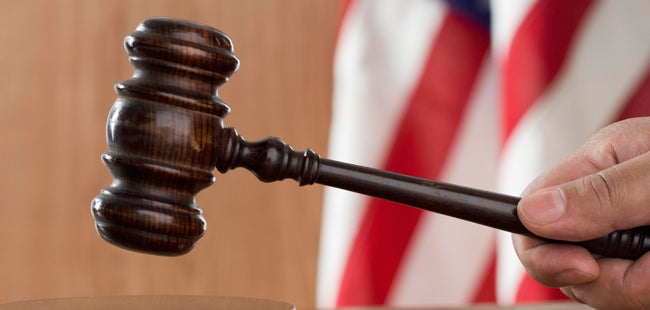 CALLER: Right. I mean, I don’t personally have anything opposed to that sort of exemption. I just don’t understand how it’s accepted that the Supreme Court could come up with that and put that into the executive order. You know, certainly a lot of us were unsatisfied when other things have come up like, you know, Obamacare and the individual mandate penalty. Was it a tax or was it a —
CALLER: Right. I mean, I don’t personally have anything opposed to that sort of exemption. I just don’t understand how it’s accepted that the Supreme Court could come up with that and put that into the executive order. You know, certainly a lot of us were unsatisfied when other things have come up like, you know, Obamacare and the individual mandate penalty. Was it a tax or was it a —
RUSH: Right. And the chief justice rewrote the law to make it constitutional because he didn’t think it was —
CALLER: Right.
RUSH: — his job to — yeah, I think this probably — and I’m just guessing. I will be able to dig deep, this came out not long enough, not enough time before the show began to dig deep in this, and I’ll be able to before the program ends here, but I think this is also part of the — it’s not a final ruling. We’re gonna hear the case in October, and until then, da-da-da-da-da, so that it doesn’t have a total finality to it.
BREAK TRANSCRIPT
RUSH: Let me give you some of the examples the court sites here in their ruling today. Several examples to explain who may enter the country during the travel ban. One example is if U.S. citizens claim close relatives from one of the targeted countries, they will be able to enter. So if Mustapha Sahib Skyhook from Dearbornistan says he’s got a close family member from some country that’s on the banned list, the guy can get in, it seems. from a targeted country.
Seems to be able to do so. If U.S. universities have accepted students from one of the targeted countries, the students will be able to enter, the university being an entity. They can start their studies. If a U.S. business has given a job to a worker from one of the targeted countries, the worker will be able to enter the country and do that job.
Now, this doesn’t appear to jibe with what the law says, which is that the president can ban anyone in the interests of national security, and that is statue that we have often cited and read from verbatim here on the program countless times. Notice that the court’s ruling did not make any mention of what Trump or his surrogates have said on the campaign trail about Muslims.
Well, I’m being a little facetious here. The lower court judges, in putting a stay on Trump’s ban, said, “He’s lying. He hates Muslims. He’s trying to ban all Muslims. He’s trying to ban a religion and it’s against our values. And he said so on the campaign trail.”
But it doesn’t say that in the executive order.
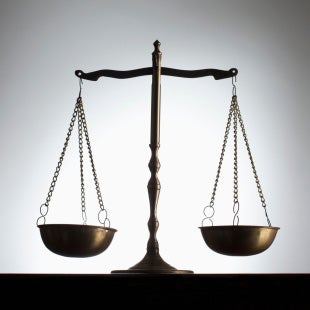 “It doesn’t have to,” say the judges. “We know what he means. We can read his mind. We know that Trump’s a bigot. We know we hate Trump, and we know what he really wants to do, and we’re not gonna let him do it.” And so that’s how they formed the legal basis, that judge Seattle, the judge in Hawaii, and the Ninth Circuit appellate judges all agreed that the Trump travel ban was not true. That Trump really was using the travel ban to implement his Muslim hatred and bigotry. And the Supreme Court makes no mention of any of that in their ruling today.
“It doesn’t have to,” say the judges. “We know what he means. We can read his mind. We know that Trump’s a bigot. We know we hate Trump, and we know what he really wants to do, and we’re not gonna let him do it.” And so that’s how they formed the legal basis, that judge Seattle, the judge in Hawaii, and the Ninth Circuit appellate judges all agreed that the Trump travel ban was not true. That Trump really was using the travel ban to implement his Muslim hatred and bigotry. And the Supreme Court makes no mention of any of that in their ruling today.
Now, let’s take the university example. Now, I understand this one. If you’re in one of the targeted countries yesterday and you have an agreement and you paid or you have a scholarship and you’re gonna come to the University of What’s Happening Now, and you’re gonna start your fall term in September, the travel ban can’t stop you. You already had an agreement with an entity that had accepted you and so you can come.
Another one is the close relative. If a U.S. citizen claims close relatives from one of the targeted countries, they’ll be able to come in. As I say, so if you have a close relative in one of the banned countries and your relative was your relative yesterday and the ban goes into effect Wednesday, it’s still your relative so your relative can get in.
I don’t know on what basis these exceptions were carved out. I didn’t have enough time before the program began to dig into this, like I will have after the program to dig into it, which I will do, because it does seem to be a little conflicted here. The statute that we read, the statute that exists here, Trump can ban anybody for any reason whatsoever, in the national interests. The Supreme Court has found it necessary to carve out some exceptions here, which I’ll get to the bottom of.


